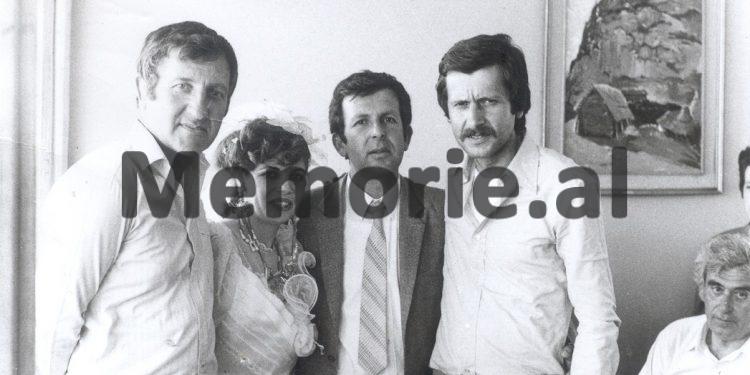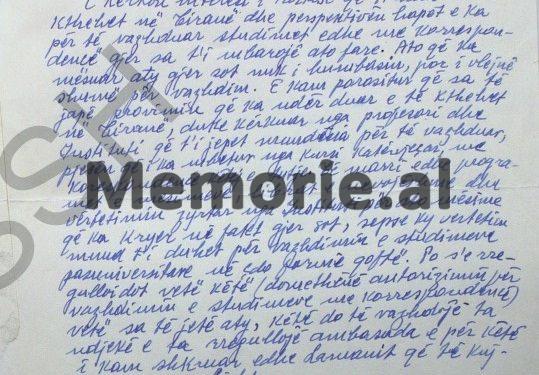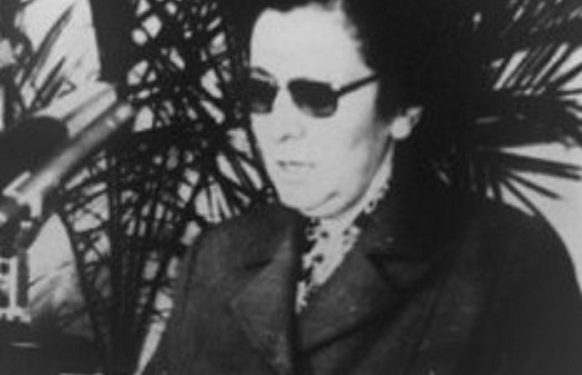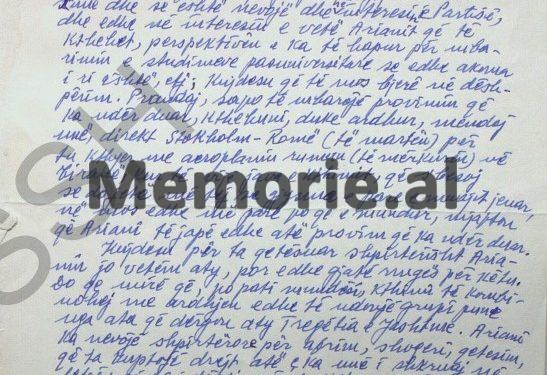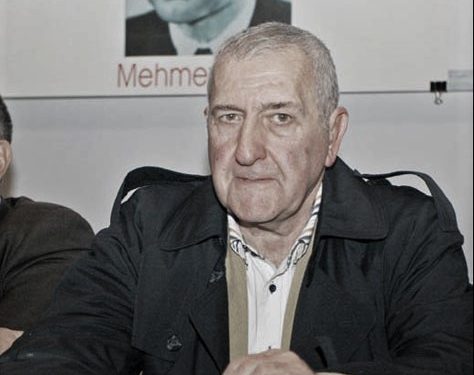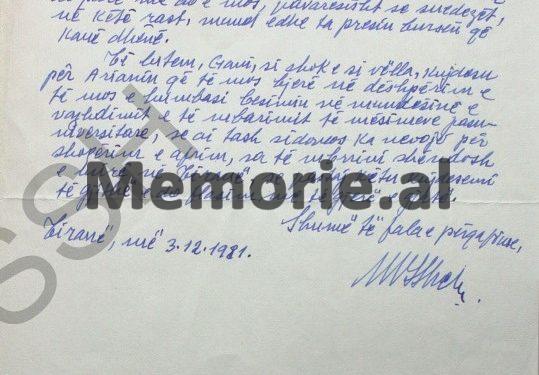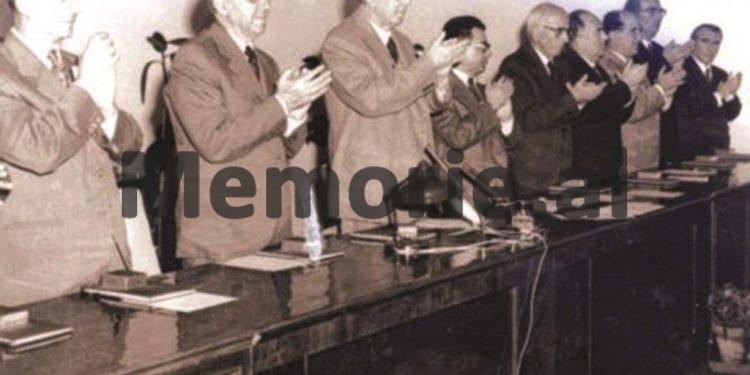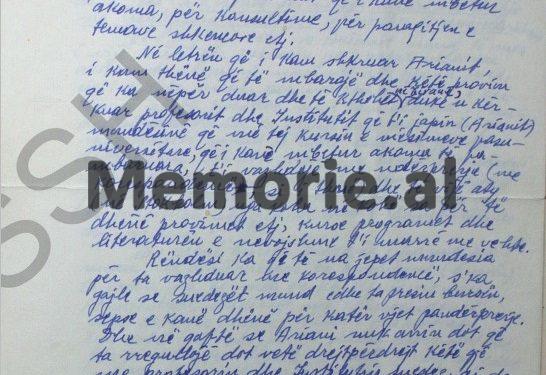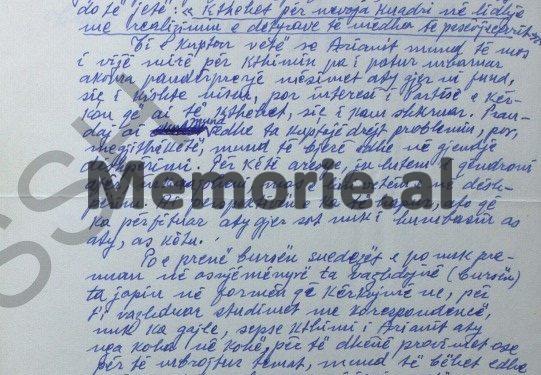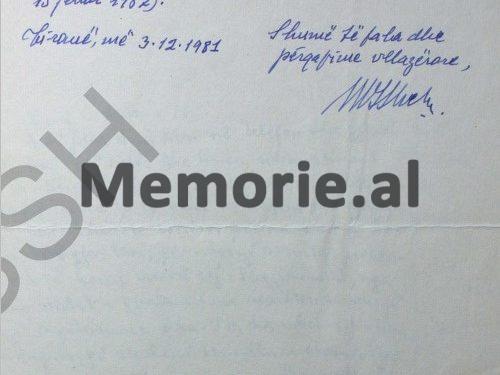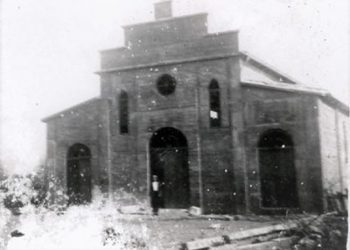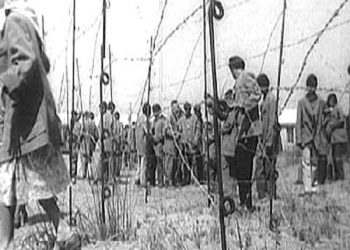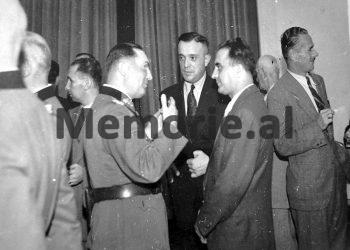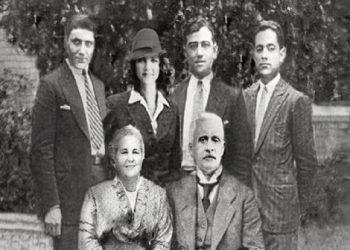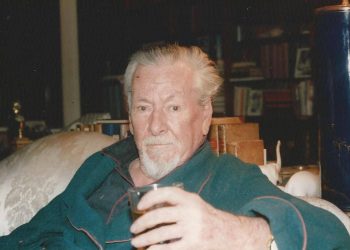From Dashnor Kaloçi
Part Thirty-Three
Memorie.al / Forty-three years ago, on the morning of December 18, 1981, the Albanian Prime Minister Mehmet Shehu, who had held that position since 1953, was found dead in his bedroom (according to the official version, from a bullet “a” from a pistol) in the villa where he lived with his family, at the entrance of the “Block” of the high leadership of the PPSH, just a few meters from the building of the Central Committee of the PPSH and also from Enver Hoxha’s villa 31. Although more than four decades have passed since that day, considered one of the most serious and publicized events of that regime, there still is no clear and accurate version about what happened to former Prime Minister Mehmet Shehu on the night leading into December 18, 1981! However, even after the ’90s, dozens of testimonies and archival documents related to that event have been made public, the “murder or suicide of Mehmet Shehu” continues to be the subject of numerous debates and discussions, even shrouding the truth about it in more mystery!
Based on this fact, in the framework of publishing dozens of testimonies and files with archival documents from the secret fund of the former State Security and the Ministry of Internal Affairs, or the Central Committee of the PPSH, which we have published over these three decades since the fall of Enver Hoxha’s communist regime and his successor, Ramiz Alia, the newspaper has secured the voluminous file of “the enemy and poly-agent Mehmet Shehu,” which has been extracted from the secret fund of the former State Security at the Ministry of Internal Affairs (now declassified and part of the fund of the Authority for Information on the Documents of the former State Security), where with a few minor exceptions, the vast majority of them has never seen the light of publication and is published here for the first time in full, along with the respective facsimiles.
In this specific file, in addition to witness testimonies from the investigation or defendants, the complete expert report of the operational-investigative group that was established immediately on the morning of December 18, 1981, headed by Koço Josifi (head of the Investigation Directorate of the Ministry of Internal Affairs of Tirana), forensic doctors Dr. Fatos Hartito and Docent Bashkim Çuberi, the Prime Minister’s doctors, Milto Kostaqi and Llesh Rroku, the criminalist expert from the Central Criminal Laboratory of the Ministry of Internal Affairs, Estref Myftari, assisted by high officials of that ministry, Deputy Minister Xhule Çiraku, the head of the Investigation Directorate in the Ministry of Internal Affairs Elham Gjika, and the deputy director of the Directorate of Internal Affairs of Tirana, Lahedin Bardhi, can also be found.
This portion reflects the complexities and the unfolding circumstances surrounding the death of Mehmet Shehu, the political implications, and the historical significance of the events in question. If you need more details or insights about this topic, feel free to ask!
In this file, there are also testimonies from the family members of former Prime Minister Mehmet Shehu, service personnel, his accompanying group, and all other individuals who were summoned and testified about the event, as well as correspondence in letters from Mehmet Shehu and Fiqrete (written in their hand) to their sons, Bashkimi and Skënderi, up until the early days of December 1981.
However, even though we are dealing with archival documents, it should be emphasized that; knowing how the communist regime functioned before the ’90s, we cannot claim absolute accuracy regarding what is written there, as not only from the witnesses and the defendants who have given their testimonies but also from some of the investigators of this case (mainly after the ’90s) it has been revealed that these were obtained under pressure, intimidation, and torture, both physical and psychological, and going further, some investigators wrote them themselves while the witnesses or defendants merely signed them.
Moreover, for several of the defendants in this investigative process, specifically in the case of Fiqrete Shehu, the questions were drafted by Enver Hoxha himself (in his handwriting) and sent to the investigators through the Minister of Internal Affairs, Hekuran Isai (which we have previously made public with the relevant facsimiles in past writings). All of this was aimed at facilitating the “discovery of the hostile group of the poly-agent Mehmet Shehu,” with the intention of justifying his alleged suicide (according to the official version)!
This passage underscores the intricate and troubled nature of the investigations surrounding Mehmet Shehu’s death and how political pressures and manipulations influenced the testimonies and narratives constructed during that time. If you have further questions or need additional insights about this topic, feel free to ask!
In this context of dictator Enver Hoxha’s paranoia, several individuals were arrested and placed in the dock as accused; Kadri Hazbiu (former member of the Political Bureau of the Central Committee of the PPSH and Minister of Internal Affairs and Defense), Feçor Shehu (former Director of the State Security and Minister of Internal Affairs), Nesi Nase (former Minister of Foreign Affairs), Llambi Ziçishti (former Minister of Health), Llambi Peçini (former head of the Department of Preservation and Physical Security for the high leadership of the PPSH), Elham Gjika (former head of Investigations at the Ministry of Internal Affairs), Gani Kodra (former head of the Department of Preservation and Physical Security for the high leadership of the PPSH and the family of Mehmet Shehu), Kristofor Martiro (former investigator of the “hostile group of Beqir Balluku”), Ali Çeno (former responsible person for the prime minister Mehmet Shehu’s entourage), Xhavit Ismailaga (former barber of Hotel “Dajti”), Idriz Seiti (former colonel of State Security, head of Internal Affairs in Kukës and Lezhë, and head of a branch in the Ministry of Internal Affairs, responsible for the preservation, security, and execution of anti-party individuals), Lirim Pëllumbi (former head of the Internal Affairs Department of Durrës County), Qamil Mane Islami (former colonel in the Directorate of Camps and Prisons at the Ministry of Internal Affairs), Duro Shehu (Mehmet Shehu’s brother, former commissioner in the Directorate of Air Force at the Ministry of Defense), Fiqrete Shehu, the wife of Mehmet Shehu, along with their two sons, Bashkimi and Skënderi, etc.
From this “hostile group,” the first four (Kadri Hazbiu, Feçor Shehu, Llambi Ziçishti, and Llambi Peçini) were sentenced to death and executed, while the others received heavy prison sentences, from which they were released only in 1991, with the exception of Fiqrete Shehu, who died in prison in 1987 under mysterious and unresolved circumstances, as well as the eldest son of the Shehu family, Vladimir, who also died under mysterious circumstances yet to be clarified in the city of Gramsh (the official version: suicide), where he was interned with his family in January 1982. For more on all these events, the relevant documents provide insight, which we are publishing along with the respective facsimiles and photographs.
This segment sheds light on the dramatic consequences of political repression during Hoxha’s regime, the severe repercussions faced by prominent figures, and the ongoing mysteries surrounding their lives and deaths. If you need further details or specific information, feel free to ask!
Continued from the previous issue
LETTER OF PRIME MINISTER MEHMET SHEHU, IN HIS HANDWRITING, SENT ON DECEMBER 3, 1981, TO THE ALBANIAN AMBASSADOR IN SWEDEN, DHIMTËR LAMANI, INSTRUCTING HIM TO TAKE CARE OF HIS SON, SKËNDER SHEHU (OR KNOWN UNDER THE ALIAS “ARIAN BOGOVA”) TO RETURN TO ALBANIA
Dear Taqi,
I have decided that Ariani should return to Tirana and continue his remaining studies there in a different form; by correspondence. He will return to Stockholm from time to time to take the exams he still has left, for consultations, to present scientific topics, etc.
In the letter I wrote to Ariani, I told him to finish the exam he has in hand and to return to Tirana, asking the professor and the Institute to allow him to continue his postgraduate studies that remain unfinished by correspondence. He should come to Stockholm occasionally to take the exams, and he can bring with him the necessary programs and literature.
What matters is that we are given the opportunity to continue by correspondence; it doesn’t matter if the Swedes may delay the scholarship since they have granted it for four consecutive years. If Ariani cannot manage to arrange this directly with the professor and the Swedish Institute, he will return to Tirana as soon as he finishes the exams he has and you should continue to follow up on the issues related to the continuation of his studies by correspondence, personally if possible, until it is settled, and then inform me by letter through the Ministry (through comrade Nesti).
I have written to Ariani extensively about the reasons why he should return, and I told him that regarding the arrangement of his studies by correspondence, I have also written to you and Gani briefly, that you at the embassy will handle this matter. If it cannot be resolved while he is there, meaning the time he will take the exam he currently has in hand. And Ariani has the opportunities to continue the course by correspondence. The justification you will provide to the professor(s) and the Institute will be: “He returns for staffing needs, in connection with the realization of the great tasks of the five-year plan.”
You understand that Ariani might not feel well about not having finished his studies continuously until the end, as he started, but the Party’s interest requires that he return, as I have written. Therefore, he may understand the issue correctly, but despite that, he might also fall into a state of despair. For this reason, I ask you to stay close to him, encourage him; do not leave him alone and in despair. His prospects are open; what he has gained there up to now will not be lost, neither there or here.
If the Swedes cut the scholarship and do not accept in any way to continue it in the form we are requesting so he can pursue his studies by correspondence, it doesn’t matter because Ariani’s return there, from time to time, to take the exams or to defend topics can also be done within the framework of the scholarships that our state provides for postgraduate studies. And it doesn’t matter even if correspondence studies continue; let’s say for five years instead of four.
Please make inquiries, and I am convinced that you will take an interest. Ariani will return with Ganiu. Bali may not come with them, but will arrive later, bringing with him Ariani’s things, which he will not be able to take himself. When he comes together with Ganiu, I anticipate it will be in the first fifteen days of January (within January 15, 1982).
Tirana, December 3, 1981
Many greetings and fraternal hugs
Mehmet Shehu
LETTER OF PRIME MINISTER MEHMET SHEHU, IN HIS HANDWRITING, SENT ON DECEMBER 3, 1981, TO STATE SECURITY OFFICER GANI KODRA, WHO ACCOMPANIED HIS SON, SKËNDER SHEHU (OR KNOWN BY THE ALIAS “ARIAN BOGOVA”) DURING HIS POSTGRADUATE STUDIES IN STOCKHOLM, SWEDEN
Dear Gani,
I have decided that Ariani should return to Tirana, and he should continue his further studies by correspondence, returning to Stockholm from time to time to take exams, etc. I have written extensively to Ariani about this and am mentioning it in this letter to you briefly. The interest of the Party requires that Ariani return to Tirana, and he has an open prospect to continue his studies even by correspondence until he completes them fully. What he has learned there up to now will not be lost but will be very valuable for his continuation.
I have instructed him that as soon as he finishes the exams he has in hand, he should return to Tirana, asking the professor and the Institute to grant him the opportunity to continue the remaining part of his four-year course by correspondence from now on. He should also take the study programs, necessary books, and an official statement from the Institute regarding the courses he has completed so far, as this statement may be needed for the continuation of his postgraduate studies in any form.
If he cannot arrange this himself (meaning the certification for continuing studies by correspondence) while he is there, the embassy will continue to follow up and arrange this. I have also written to Lamani about this, to take personal care of it. You will return with Ariani, while Bali will take your and Ariani’s things, which he won’t be able to take with him; he will come later with the others, or when you return there to take Bali and the items.
The justification at the Institute, with the professor and the relevant Swedish authorities for Ariani’s return, will be: “Ariani is returning for our staffing needs in relation to the realization of the new five-year plan,” as I have written to Ariani and Lamani. Please, Gani, take care to stay very close to Ariani, so he understands the content of my letter and that it is necessary and in the interest of the Party, as well as in Ariani’s own interest, for him to return; he has an open prospect to complete his postgraduate studies, as he is still young, etc.; make sure he does not fall into despair.
Therefore, as soon as he finishes the exams he has in hand, return, coming, I think, directly Stockholm-Rome (on Tuesday), to fly back with the Romanian airplane (on Wednesday) to Tirana, when the week of return comes, which I don’t believe will be later than the first half of January, if not sooner, as long as Ariani also takes that exam he has in hand. Make sure to spiritually calm Ariani, not only there but also during the journey back here.
It would be good if, if possible, the return could be coordinated with the arrival of some work group from those sent by Foreign Trade. Ariani has a spiritual need for closeness, companionship, and reassurance, to clearly understand what I am writing to him in the letter I am sending, regarding returning to continue his studies by correspondence, as this is in the interest of the Party but also in his own interest, to understand, with party spirit as a communist, with calmness, and in no way to lose the prospect of study, as the Party is the great Mother that helps its sons at all times.
And I am confident that he will understand correctly. While Ariani is there, make sure that the Swedes provide the opportunity for him to continue his studies by correspondence. If you cannot conclude this matter, Lamani will follow up on it, as I have written. The possibility of continuing studies by correspondence from now on must be looked at closely, regardless of whether the Swedes, in this case, might delay the scholarship they have granted.
Please, Gani, as a friend and brother, take care of Ariani so that he does not fall into despair and does not lose faith in the possibility of continuing and completing his postgraduate studies, because now, especially, he needs companionship and closeness until you arrive safely back in Tirana. After that, we will all take care of him here, and we will talk more broadly and in depth./Memorie.al
Many greetings and fraternal hugs
Mehmet Shehu
Tirana, December 3, 1981
Continued in the next issue




